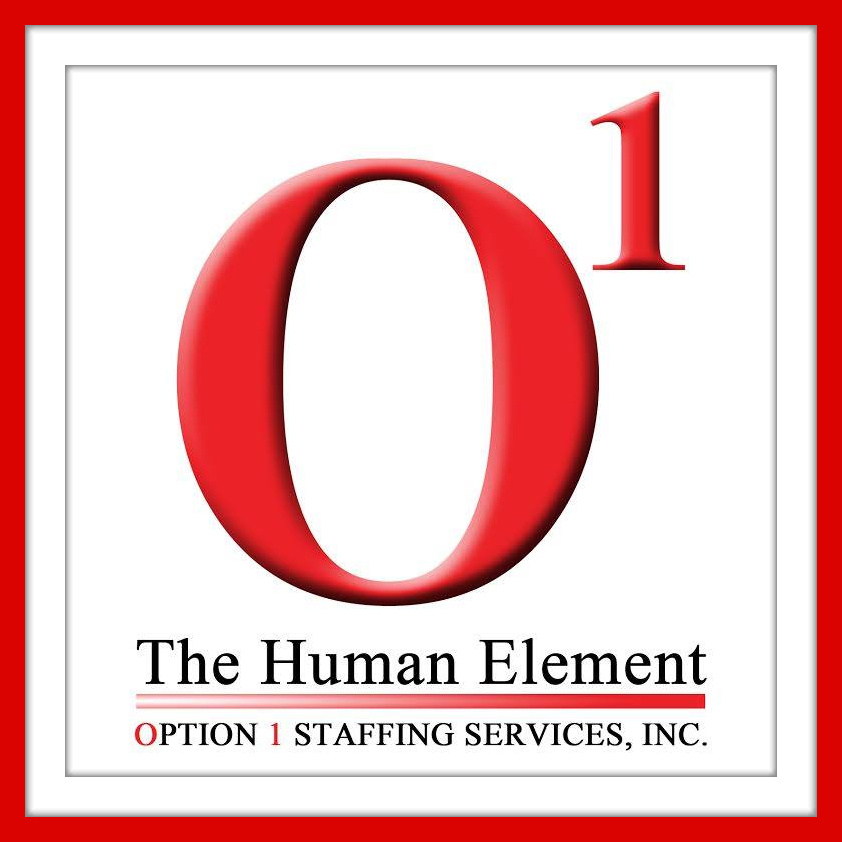
ADMINISTRATIVE ASSISTANTS ARE THE BACKBONE OF EVERY COMPANY; LEARN HOW TO STAND OUT WITH A CLEAN AND ORGANIZED RESUME.
They schedule meetings and appointments, organize everything within the office, and make sure the company has the resources it needs to keep running. Without the help of administrative assistants, visitors would come and go and CEOs would wander aimlessly into meetings and out of missed appointments.
As the role of the administrative assistant is critical to keeping an office on track, it makes sense that the vetting and hiring process is also more involved. Hiring managers want to find someone who can keep everything organized over the next several years. If you’re that person, keep these tips in mind.
Understand What Skills Are Valued by the Company
As you tailor your resume to each individual company and position, make sure you’re highlighting skills and tasks that you will actually use. Some administrative assistants have more job duties than others, and employees in each office and industry have different workloads. Filing might have been a small part of your job at your past company, for instance, but could take up significantly more time in your new role.
One of the easiest ways to ensure you’re highlighting the skills required by the company you’re applying for is to look at the job description itself. For example, if the description requires applicants to manage appointments, set up conference rooms for meetings, and vet callers before passing them on to the proper channel, you could list exactly how you did that on your resume. If they’re looking for candidates with strong listening and organization skills, mention how you organized your last office or launched a new filing system. You don’t have to guess what a company is looking for; they’re already telling you with the job description.
Explain the Organizational Structures You’re Familiar With
As an administrative assistant you could work with a variety of departments within a company. Front-of-office staff assist people on all levels and departments and often are the first people guests and employees see every day. Meanwhile, executive assistants only work with the CEO, President, or other high-ranking officials to manage their appointments and workload. There’s even a section of secretaries in between who work within one department as an extra set of hands for several people. Even when multiple secretaries have the same job title, their daily tasks could vary greatly.
As you’re drafting your resume, make sure you mention who you reported to and worked for. This will give employers an idea of your level of responsibility and what you’re used to. Plus, if you’ve been the aid to a Fortune 100 CEO, then you’re likely to attract the attention of other hiring managers on that level.
Include a Mixture of Soft and Technical Skills
Here is a helpful list of skills that are important for administrative professionals. These include everything from document management and editing to event planning and software training. The sheer variety and depth of the skillset show exactly how varied the role of a secretary can be. However, as you draft your resume and explain the levels of experience you have, make sure you include a mixture of soft skills as well.
The role of an administrative assistant requires sharply-honed soft skills along with technical ability. For example:
- If the CEO gives you a list of items to complete, do you listen so you don’t forget anything?
- When tasked with multiple things to do, how do you prioritize them?
- How do you solve problems when you can’t complete your list?
- How do you report completed tasks to management?
Your answers to these questions should involve the soft skills of listening, organization, problem-solving, and communication. Without these soft skills, the work doesn’t get done, tasks are forgotten, and the CEO has to micromanage his or her assistant. This eliminates all of the benefits of hiring you, who’s job it is to reduce the workload of management — not the other way around.
List Certifications and Completed Training
During the course of your career, did your company send you to complete any training or advancement classes? Did you advance your skills on your own time to make you better at the job? If so, you want to include these skills and courses on your resume.
Administrative work is becoming increasingly reliant on software. You may need to maintain Excel spreadsheets, manage calendars or contacts digitally, and use various tools to access contracts and pull reports. If you already have the relevant software training, then the team who hires you won’t have to set aside time to teach you. Many companies prefer to hire employees with existing skill sets so they can get to work right away instead of working through a learning curve.
If you don’t have a strong technical skill-set, then acquiring one during the job search can help improve your chances. For example, consider signing up for an Excel class at your local library or community college. This will boost your skill set and make up for a lack of experience.
Your Resume Showcases Your Work Style
As an administrative assistant, your resume is a shining example of what people can expect when they work with you. If your resume is clean, organized, and easy to read, then hiring managers can see that you present information in a clear and thoughtful way. However, if your resume appears cluttered and lengthy, they might assume that all of your communication and note styles will follow a similar pattern. This is why resume presentation is particularly important when applying for secretarial or administrative positions.

ADMINISTRATIVE ASSISTANTS ARE THE BACKBONE OF EVERY COMPANY; LEARN HOW TO STAND OUT WITH A CLEAN AND ORGANIZED RESUME.
They schedule meetings and appointments, organize everything within the office, and make sure the company has the resources it needs to keep running. Without the help of administrative assistants, visitors would come and go and CEOs would wander aimlessly into meetings and out of missed appointments.
As the role of the administrative assistant is critical to keeping an office on track, it makes sense that the vetting and hiring process is also more involved. Hiring managers want to find someone who can keep everything organized over the next several years. If you’re that person, keep these tips in mind.
Understand What Skills Are Valued by the Company
As you tailor your resume to each individual company and position, make sure you’re highlighting skills and tasks that you will actually use. Some administrative assistants have more job duties than others, and employees in each office and industry have different workloads. Filing might have been a small part of your job at your past company, for instance, but could take up significantly more time in your new role.
One of the easiest ways to ensure you’re highlighting the skills required by the company you’re applying for is to look at the job description itself. For example, if the description requires applicants to manage appointments, set up conference rooms for meetings, and vet callers before passing them on to the proper channel, you could list exactly how you did that on your resume. If they’re looking for candidates with strong listening and organization skills, mention how you organized your last office or launched a new filing system. You don’t have to guess what a company is looking for; they’re already telling you with the job description.
Explain the Organizational Structures You’re Familiar With
As an administrative assistant you could work with a variety of departments within a company. Front-of-office staff assist people on all levels and departments and often are the first people guests and employees see every day. Meanwhile, executive assistants only work with the CEO, President, or other high-ranking officials to manage their appointments and workload. There’s even a section of secretaries in between who work within one department as an extra set of hands for several people. Even when multiple secretaries have the same job title, their daily tasks could vary greatly.
As you’re drafting your resume, make sure you mention who you reported to and worked for. This will give employers an idea of your level of responsibility and what you’re used to. Plus, if you’ve been the aid to a Fortune 100 CEO, then you’re likely to attract the attention of other hiring managers on that level.
Include a Mixture of Soft and Technical Skills
Here is a helpful list of skills that are important for administrative professionals. These include everything from document management and editing to event planning and software training. The sheer variety and depth of the skillset show exactly how varied the role of a secretary can be. However, as you draft your resume and explain the levels of experience you have, make sure you include a mixture of soft skills as well.
The role of an administrative assistant requires sharply-honed soft skills along with technical ability. For example:
- If the CEO gives you a list of items to complete, do you listen so you don’t forget anything?
- When tasked with multiple things to do, how do you prioritize them?
- How do you solve problems when you can’t complete your list?
- How do you report completed tasks to management?
Your answers to these questions should involve the soft skills of listening, organization, problem-solving, and communication. Without these soft skills, the work doesn’t get done, tasks are forgotten, and the CEO has to micromanage his or her assistant. This eliminates all of the benefits of hiring you, who’s job it is to reduce the workload of management — not the other way around.
List Certifications and Completed Training
During the course of your career, did your company send you to complete any training or advancement classes? Did you advance your skills on your own time to make you better at the job? If so, you want to include these skills and courses on your resume.
Administrative work is becoming increasingly reliant on software. You may need to maintain Excel spreadsheets, manage calendars or contacts digitally, and use various tools to access contracts and pull reports. If you already have the relevant software training, then the team who hires you won’t have to set aside time to teach you. Many companies prefer to hire employees with existing skill sets so they can get to work right away instead of working through a learning curve.
If you don’t have a strong technical skill-set, then acquiring one during the job search can help improve your chances. For example, consider signing up for an Excel class at your local library or community college. This will boost your skill set and make up for a lack of experience.
Your Resume Showcases Your Work Style
As an administrative assistant, your resume is a shining example of what people can expect when they work with you. If your resume is clean, organized, and easy to read, then hiring managers can see that you present information in a clear and thoughtful way. However, if your resume appears cluttered and lengthy, they might assume that all of your communication and note styles will follow a similar pattern. This is why resume presentation is particularly important when applying for secretarial or administrative positions.
